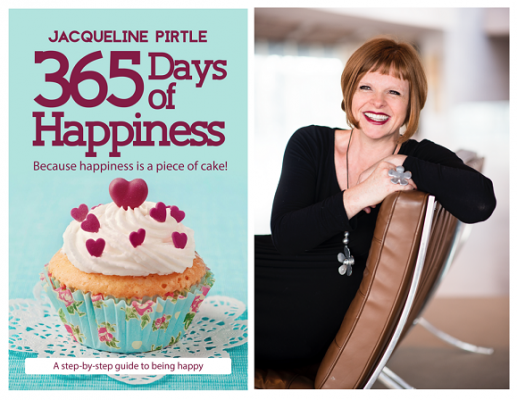Happiness
5 Ways to Increase Your Happiness Today
by Robert Fishman
Many Americans strive for the elusive idea of happiness. Unfortunately, many times when an individual searches for happiness, they are met with disappointment, frustration and helplessness. We live in a culture where work, money, and status are celebrated and revered. This can creates a shallow existence that leaves people feeling empty and needing more. The good news is there are easy things we can do to increase happiness in our everyday lives. Happiness can be achieved through a few simple lifestyle changes.
1. Gratitude Journal
One proven way to increase happiness by creating a positive perspective is through acknowledging what you are grateful for in your life. Too often we obsess over the things that are going wrong in our life and the daily stressors. To remedy the seemingly never-ending stressful thoughts, try listing five things you are grateful for. Better yet, do this first thing in the morning to start your day off on a positive note. List the little things such as enjoying a cool evening, or list the big things like your health. Implementing this short and easy ritual into your day changes the way your brain reacts to daily stressors. Leave the list on your desk or some place you will see it periodically throughout the day. Increase happiness and decrease anxiety by intentionally cultivating positivity. Keeping a gratitude journal is recommended during recovery in order to focus on the good things in your life during moments of possible weakness.
2. Go for a Walk
In the era of high-intensity training fads, the notion of a simple walk has lost its appeal for many. But any kind of physical activity acts as an antidepressant and improves cognitive functions. Just one 20-minute walk every day can quickly turn into your favorite part of your day. Moving your body increases circulation and can help improve your overall quality of life through better sleep and calming down your nervous system. Focus on your breath and try and breathe deeply for the whole 20 minutes can offer increased physical and mental benefits. Creating a habit of moving every day, even if it is just a 20 minute walk, will start a domino effect that can positively impact other lifestyle decisions like diet and media consumption.
3. Be in Nature
Humans have an inherent connection with nature and when that connection is not fostered, we can be left feeling drained, irritable and susceptible to self-medicating through drugs and alcohol. The body has a physiological responses when we sit in nature. Particularly for those individuals suffering with PTSD, nature provides safe and effective stress relief without the added side effects of prescription pills. Some of the benefits of spending time in nature are sustained happiness, increased creativity, higher self-esteem, reduced hypertension (high blood pressure), lower anxiety and increased life satisfaction. Aside from the more expected benefits of being in nature, spending time outside increases your opportunity to meet people and build relationships with existing friends and family members.
4. Positive Self-Talk and Affirmations
An affirmation is positive statement about yourself or your life that helps you overcome negative feelings and ideas you may have about yourself. These statements can be said out loud, or in your head. The whole idea behind positive affirmations is that they interrupt a stream about yourself, your body, your performance at work, or other stress factors. Affirmations can actually shift your perspective on yourself and your world view. At first it can feel forced, but as you incorporate affirmations into your daily routine, they become a habit that helps you become more aware of those negative thoughts that cause you to be unhappy. Instead of telling yourself, “I am not skilled enough to succeed at this job” try reframing to say something like, “I am talented and hard working and can accomplish anything I set my mind toward.” Many people who struggle with body image issues and eating disorders incorporate positive affirmations in addition to comprehensive, professional health care.
5. Social Media Cleanse
If we are not careful with our social media consumption, we run the risk of flooding ourselves with messages that tell us we are not good enough. Social media represents a perfect snapshot of someone’s life. Unfortunately, when exposed to these small glimpses, we tend to compare our lives to theirs and almost always convince ourselves that we fall short. The average American consumes about two hours of social media each day, while the average teen consumes up to nine hours of social media a day. In order to responsibly consume social media, especially in recovery, it’s vital to consume media that is uplifting and positive. Spending two hours out of your day thinking you’re not good enough can have serious implications on the other 22 hours out of your day. Some of the negative side effects of consuming social media are lower self-esteem, increased likelihood of frivolous spending, negative body image, and poor sleep quality sleep.
By implementing these activities into your daily life, you can notice a positive difference in your perspective and outlook. Once they become part of your daily routine, you may wonder how you lived without them. Happiness does not — and should not — feel out of reach for anyone. You have everything you need to achieve happiness and set yourself up for a positive, optimistic outlook on yourself and your life. Taking the necessary steps to become happier will impact other areas of your life, like recovery. A life complete with adventure, happiness, and positivity can make recovery feel more achievable and rewarding.
About the Author
Robert Fishman, Vice President of Admissions, oversees the admissions department for all ARS facilities. Mr. Fishman ensures that callers, visitors, patients and their families receive superior service in a compassionate atmosphere from his highly trained intake team. His techniques have increased the overall effectiveness of the team and resulted in a positive experience for callers and referral sources. Most importantly, he shares his own recovery experience to connect, engage and assist patients in taking the first step to achieving a life in sobriety. Since 2009, he has assisted and encouraged thousands of individuals who have sought a life without their addiction.








